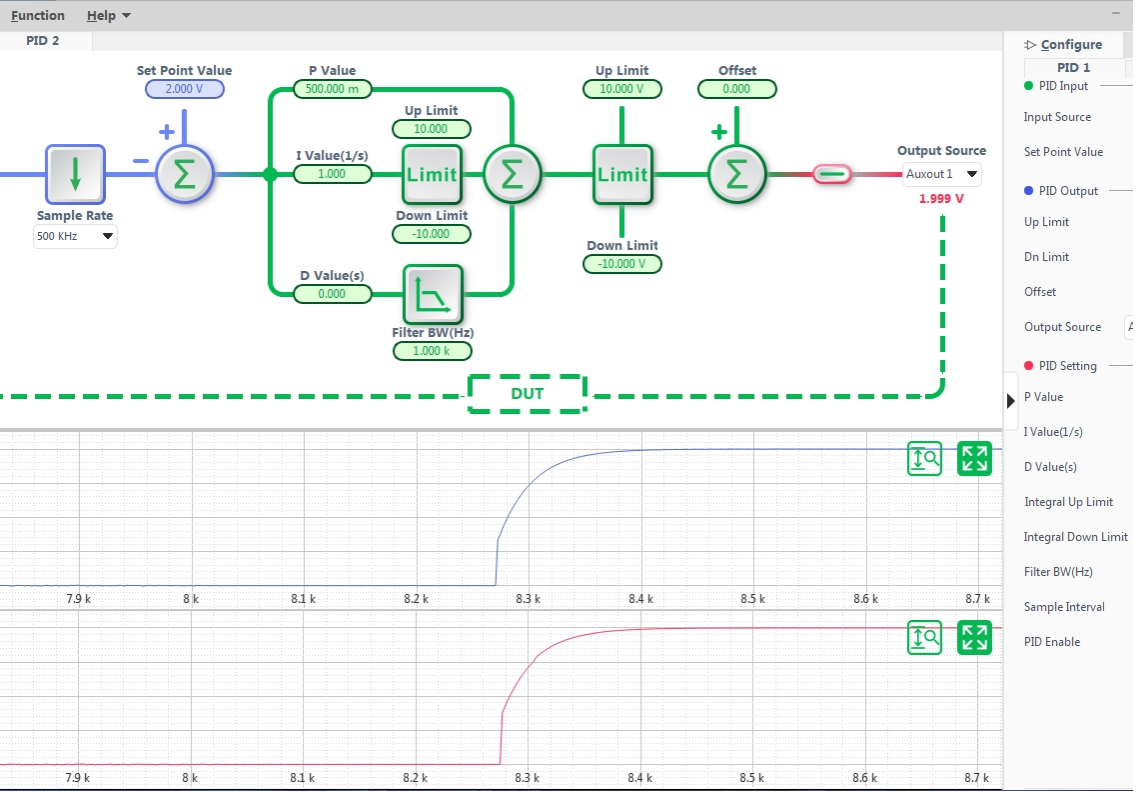







Signal Channel
Voltage Input Mode Single-ended or Differential
Full-scale sensitivity 1 nV to 5 V in 1-2-5 sequence
Current gain 106V/A
Input Impedance
Voltage 10 MΩ//10 pF, AC or DC coupled
Current 1 kΩ to virtual ground
C.M.R.R >70 dB to 10 kHz,decreasing by 6 dB/oct above 10 kHz
Dynamic reserve >120 dB
Gain accuracy 0.5% standard, 2% max.
Voltage noise 5 nV/√ Hz at 997 Hz
Reference channel
Inputs
Frequency range 1 uHz to 1 MHz
Reference Input TTL or Sine
Input impedance 10 MΩ
Square reference level VIH>3V, VIL<0.5V
Sine reference signal >2 Hz
>400 mVpp
Phase
Resolution 1udeg
Absolute phase error <1deg
Relative phase error <0.001deg
Drift <0.01 deg/℃ below 10 kHz
<0.1 deg/℃ above 10 kHz
Harmonic detection 2F, 3F, ...nF to 1 MHz (n<65,535)
Acquisition time
Internal reference instantaneous acquisition
External reference (3 cycles + 5 ms) or 40 ms,whichever is larger
Demodulator
Number of demodulators 8
Stability
Digital Output No zero drift for all settings
Display No zero drift for all settings
Analog Outputs <5 ppm/℃ for all dynamic reserve settings
Harmonic Rejection -90 dB
Time constant 1 us to 3 ks, 6, 12, 18, 24,30,36,42 ,48dB/oct rolloff
Synchronization Filter Available below 1 kHz(18,24,30,36,42,48 dB/oct rolloff)
Signal Generator
Frequency
Range 1 uHz to 1 MHz
Accuracy 2 ppm + 10 uHz
Resolution 1 uHz
Distortion -70 dBc
Amplitude 100 uVrms to 5 Vrms (resolution 10 uVrms)
Tolerance 0.5%
Temperature stability 100 ppm/°C
Sine Output Sine signal,output impedance 50 Ω
TTL Synchronous Output 5V TTL/CMOS level, output impedance 200 Ω
AUX Inputs and Outputs
CH 1 and CH 2
Function X,Y,R,θ and harmonics
Amplitude ±10 V
Drive Current ±30mA max
AUX Inputs
Function 2-channel inputs
Amplitude ±10 V, 1 mV resolution
Impedance 1 MΩ
Multi-Channel System Parameters Communication Interface
RS-232 Standard 9-array RS-232 female socket
USB2.0 USB 2.0 high speed communication interface
Enternet 1 Gbps Gigabit network communication interface
Other
Power Requirements
Voltage 220-240 VAC (110~120 VAC optional)
Frequency 50 Hz / 60 Hz
Power 50 W to 200 W (Increase power with additional channels)
Power supply noise rejection 70 dB@1 MHz
Scanning Microscope AFM, STM, SPM
Materials Science Carrier mobility, Carrier density, Hall effect, Ultrasonic materials
Transport Measurement Conductivity measurement, Impedance measurement
Noise Represents Noise density, Cross-correlation measurement
Optical Experiment Spectral analysis, Spectral measurement, THz measurement, TDLAS
Sensor Measuring Gyroscope, Photoelectric sensor, Resonator, Accelerometer
Magnetic Sensor SQUIDs, NV color center, Atomic Magnetometer, VSM
Biomedical Microfluidic
Oscilloscope
The oscilloscope features a 4 MSa/s analog input channel with 2 MHz analog bandwidth, 5 Vrms input voltage range, and user-configurable AC/DC coupling and 10 MΩ impedance.
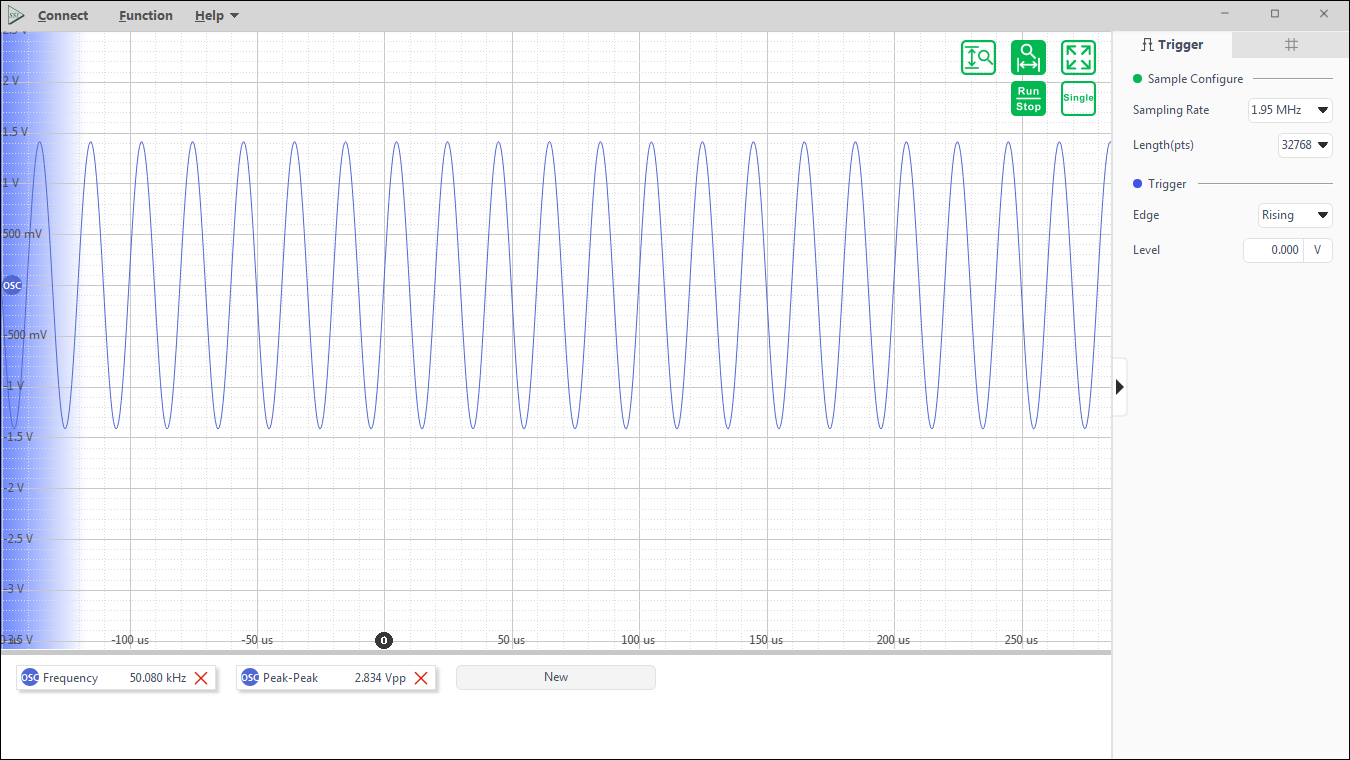
Spectrum Analyzer
Spectrum analyzers can observe DC to 2 MHz input signals in the frequency domain. Simultaneous resolution bandwidths are as low as 1 Hz with a minimum span of 100 Hz.
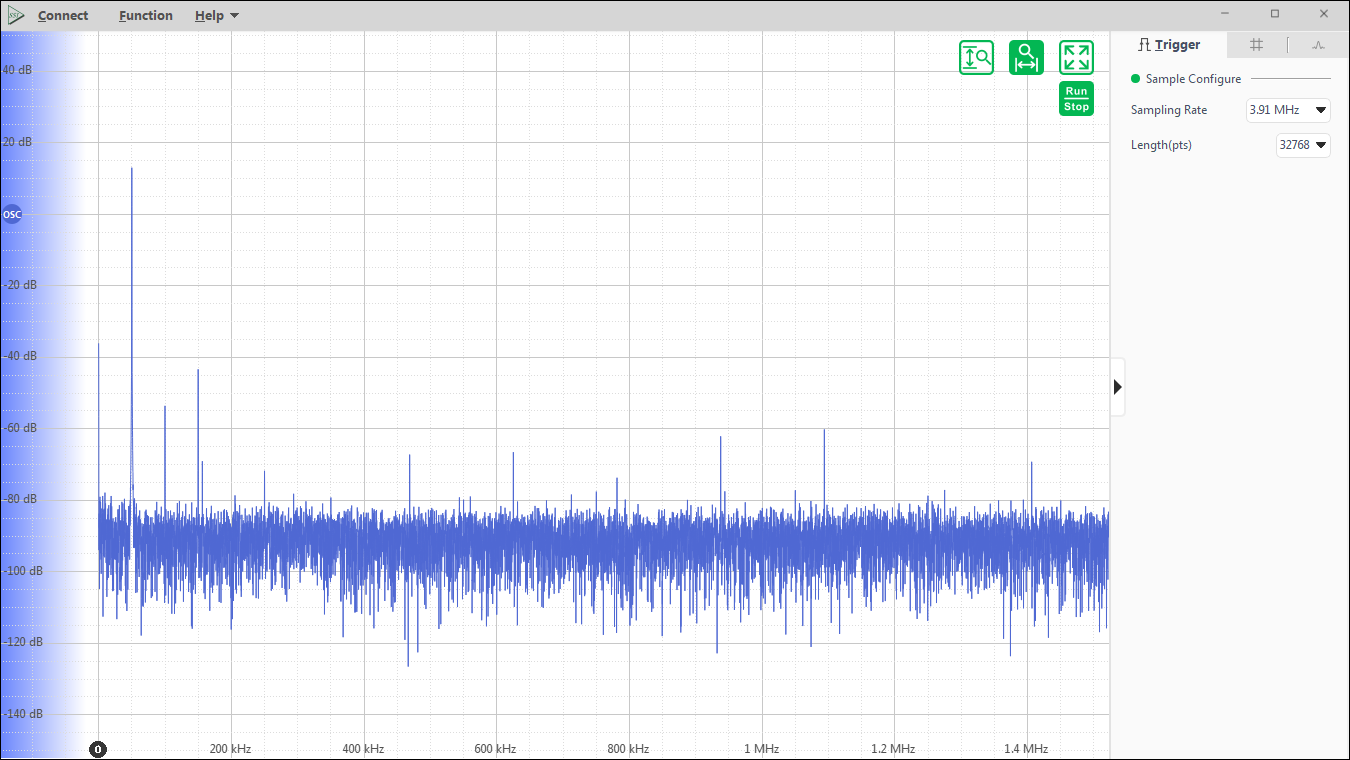
PC Software Operation
Equipped with graphical upper computer software. With quick graphic buttons and rich graphic operation functions, in addition, the software has a clear numerical value display and waveform display function, real-time display of measurement data, measurement results can be saved in excel format output for subsequent analysis of professional software, so as to make the test easy to handle. In addition, we also fully support Python, MATLAB and LabVIEW application program interface (API).
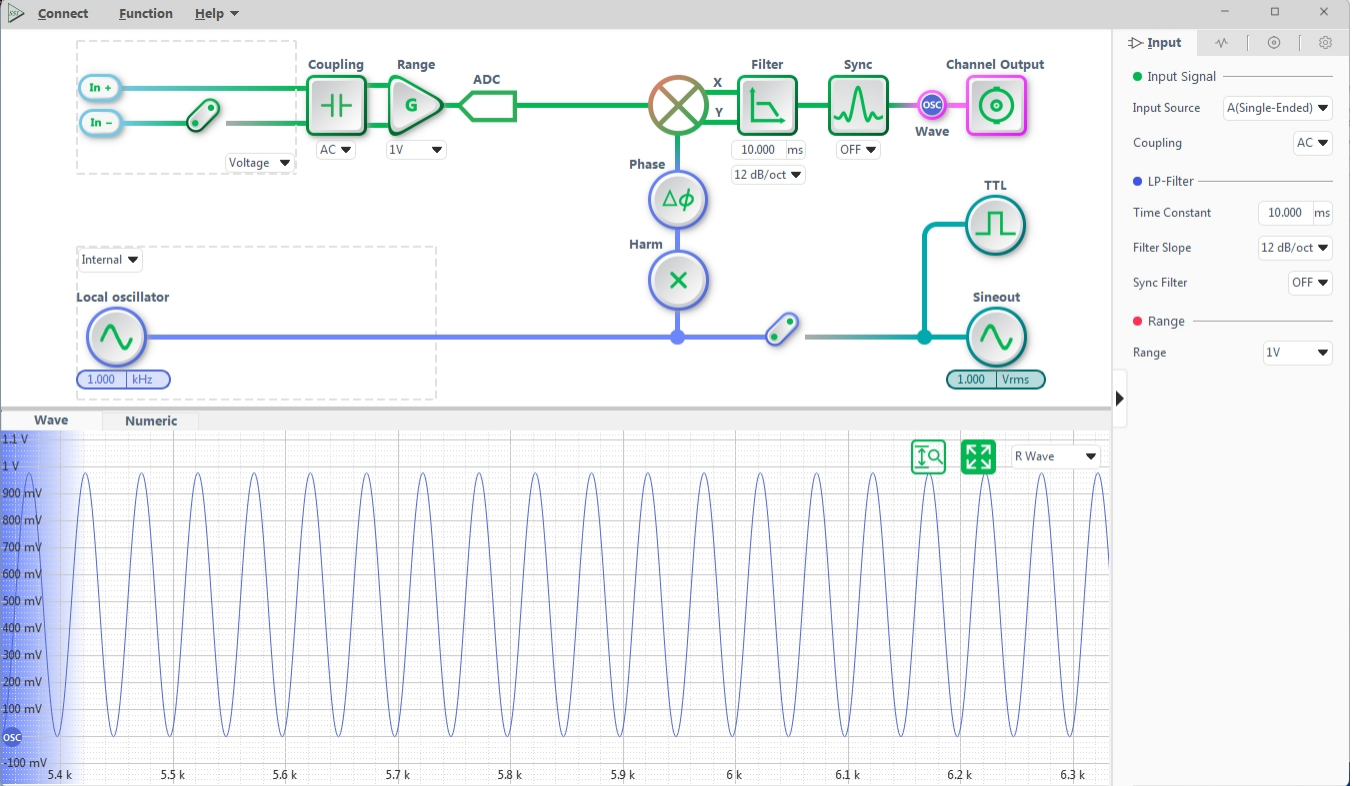
Multi-Demodulator
Conventional lock-in amplifiers can only measure the fundamental frequency or a certain harmonic component at the same time. Therefore, for some cases that require the amplitude and phase of multiple frequency components at the same time, traditional lock-in amplifiers are unable to meet the measurement requirements.The digital side of the multi-channel lock-in amplifier combines FPGA and ARM technology to realize higher processing bandwidth and more flexible digital architecture, with a digital processing accuracy of up to 48 bits, allowing up to 8 easy frequency analysis signal inputs at the same time, and 8 demodulators that can be freely configured for amplitude and phase to realize free combination. demodulators can be freely configured amplitude and phase to realize free combination.
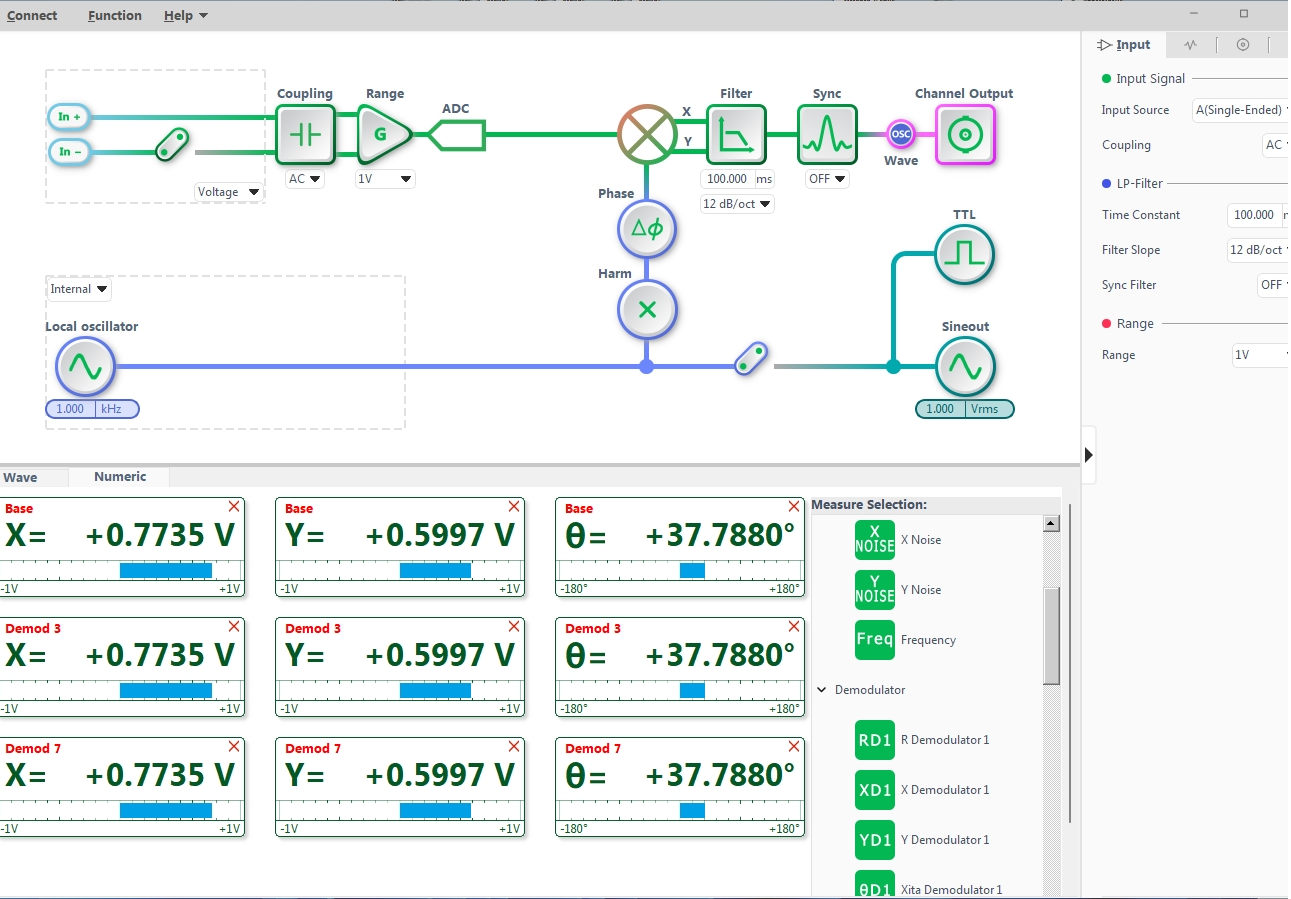
PID Controllers
The multi-channel lock-in amplifier features a built-in independent 2-channel digital PID controllers, the PID sampling rate can reach up to 4 MSa/s. The 2 PID controllers are tightly connected to the lock-in amplifier and can take all input interfaces and measurement signals as inputs and provide feedback via signal amplitudes, phase shifts, output interfaces and more. The PID provide stable and accurate control, can handle changes in system dynamics effectively, making them suitable for a wide range of applications.
